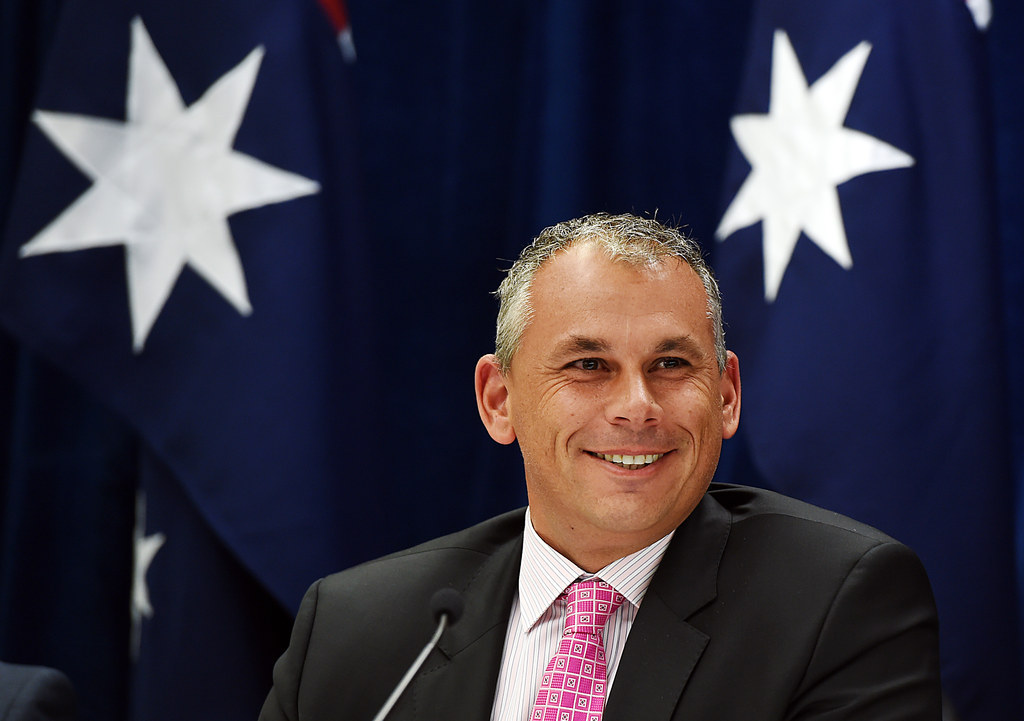Indigenous Northern Territory senator Nova Peris has slammed plans to allow a sanctioned tourist climb to the top of Uluru.

Northern Territory chief minister Adam Giles is encouraging the Anangu people, who are the traditional custodians of Uluru, to support the tourist climb. Giles says an official Uluru climb could rival the Eiffel Tower as a tourist attraction.
Uluru is a deeply spiritual and sacred place for the Anangu people. While tourists are not currently forbidden from climbing Uluru, but are respectfully asked by the Anangu people to stay off the site. Despite this, thousands of visitors, most of them Australian, make the trek each year.
Debate around closing the climb has raged since 1985, when the Uluru-Kata Tjuta National Park was handed back to the traditional owners by the then-prime minister Bob Hawke. Soon after the government secured a 99-year-lease on the land.
The majority of the Uluru-Kata Tjuta management board is made up of traditional owners, but the climb remains open.
The Anangu, who have lived in the shadow of Uluru for thousands of years, are now based in the nearby Aboriginal community of Mutitjulu. They say that people climbing the rock has caused them deep cultural offence and sadness.
Giles says a sanctioned climb would be consistent with the government's Indigenous economic empowerment strategy. "[It] would see a great opportunity for local Anangu to participate in a lucrative business and create much needed local jobs," he said.
"[Uluru] rises 348m above the plane and more than 860m above sea level. It is higher than the Eiffel Tower and a whole lot more beautiful."
"That is why 300,000 or more tourists travel to Uluru each year, many of them wanting to climb if they knew that it was condoned by the local Aboriginal people."
Giles, who is also an Indigenous man, said any changes to the current arrangement would take traditional owners' views into consideration.

"There are plenty of examples worldwide of culturally sensitive sites and tourism experiences combining successfully for example: the temple Angkor Wat in Cambodia; the Taj Mahal in India and the Macu Picchu in Peru all coming close to mind," he said.
Giles said he recently visited Uluru with legendary Australian golfer Greg Norman and both of them could see benefits in allowing people to climb.
"Just prior to that visit to Uluru [with Norman] I was in Sydney, coincidentally watching people climb the Sydney Harbor Bridge," Giles told the NT parliament.
"More than three million people from over 100 countries have climbed the bridge since the climb was opened in 1998. The experience has been voted as one of the world's most spectacular and exhilarating."
Giles said that while he is aware that the Sydney Harbour Bridge does not hold the cultural or spiritual significance of Uluru, it may be time to create an officially sanctioned climb.
Senator Peris told BuzzFeed News the plan is disrespectful to the wishes of traditional owners.

"Comparing the Eiffel Tower to Uluru is simply ridiculous," she said. "Uluru is one of the most culturally and spiritually significant places in Australia. It's not just a place to with a nice view. It's much more than that."
"Uluru's value comes from its cultural significance and the spiritual connection the Anangu people have to the area. That's not something to be messed with for the sake of a political point."
Keshia Randall, whose family are traditional caretakers of Uluru, told BuzzFeed News last year that climbing Uluru is disrespectful.
"I'm frustrated that the national park isn't shutting it down, they think that it's the main attraction and tourists just want to come here to climb a big rock."
"I think they (park management) are convincing those on the board that if the climb closes, the tourist money will stop."
Peris says any decision should be made by the Anangu people, not politicians.
"We want Uluru to be in pristine condition, 50 or 100 years from now, which is one reason traditional owners ask that tourists don't climb it, to preserve its beauty."
